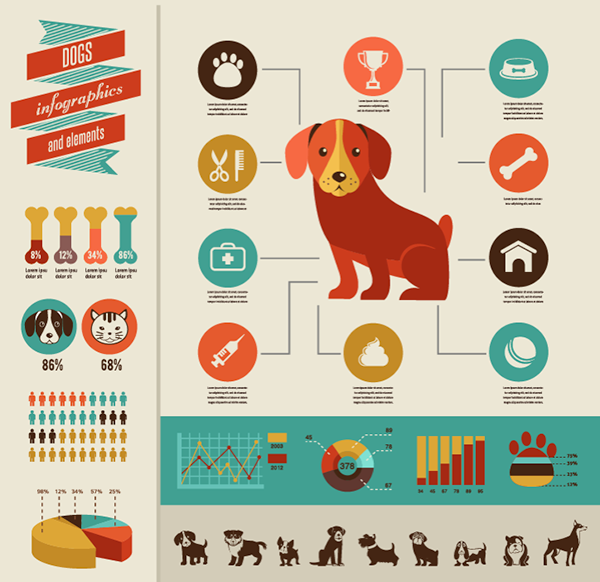Canines in daycare receive great deals of exercise, socialization with various other pet dogs and special experiences. This can be particularly helpful for pups and pet dogs with behavioral issues.
There are a number of lawful factors to consider you require to take into account when starting a doggy day care company. These consist of the framework of your service and conformity with federal government guidelines.
1. Pooch Distemper
Canine distemper is spread out with straight contact with the physical liquids and waste of an infected dog, but it can also be transmitted via shared water and food bowls or through airborne droplets. This highly contagious illness is most dangerous for puppies, but it can impact dogs of any age and is fatal for most if left neglected.
Preliminary signs of canine distemper typically imitate a cold, including runny eyes and nose with watery or pus-like discharge. As the disease progresses, a dog will develop high temperature, coughing, lowered cravings, throwing up and looseness of the bowels. The virus can likewise assault the nervous system, resulting in seizures, twitching and partial or full paralysis.
Reputable daycares reduce direct exposure to infection by calling for inoculations, routine health examinations and follow strict hygiene methods. If your dog appears extremely worn out or limping, a day of rest might aid him recuperate, but you should stay clear of taking him back to childcare up until these signs clear up.
2. Kennel Coughing
Kennel coughing, likewise known as infectious canine tracheobronchitis or Bordetella, is a very transmittable viral or microbial illness that affects the respiratory system. It's generally transferred through the exchange of saliva or air beads that an unwell pet dog exhales. Social dogs go to greater risk for infection as a result of their constant communication with one another, such as when they play, share food or water, smell each other or just meet in a jampacked atmosphere like a canine park or daycare.
One of the most typical symptom of kennel coughing is a consistent and forceful coughing that sounds like something stuck in the throat or retching. Usually, pet dogs will cough up foamy white phlegm. If left unattended, a canine can develop pneumonia and go to severe danger permanently.
A reputable childcare center must have strict cleansing and hygiene procedures, sanitize all playthings, food and water bowls on a regular basis, and be open regarding their vaccination plans. Maintaining your dog approximately date on their vaccinations, especially for bordetella and canine influenza, will greatly lower their possibilities of contracting the illness.
3. Parvovirus
Canine parvovirus, or parvo, is an extremely contagious viral illness that can be harmful for young puppies and young person pet dogs with poor body immune systems. It's most typically spread by straight contact with contaminated pet feces-- which can occur when canines smell, lick, or taste infected feces-- and indirectly from infected people, objects, or settings (like kennels, grooming areas and yards). Young puppies and canines without full vaccination histories are particularly at risk to parvo.
The virus is exceptionally resilient, enduring in the atmosphere for approximately nine years, and can quickly be moved between pets by get in touch with through feces or on shoes, clothing, and bed linen infected with parvovirus. Otherwise dealt with right away with IV liquids, electrolyte balance, throwing up control medications and prescription antibiotics to prevent additional microbial infections, a canine will swiftly dehydrate and establish extreme diarrhea, which brings about shock and sepsis. Parvo is hard to cure as soon as a dog has actually become ill, however with ideal veterinary care, several young puppies do endure this disease.
4. Pooch Influenza
Dog flu virus is extremely contagious and spreads with direct get in touch with, sharing food and water bowls, licking or nuzzling various other canines, via airborne droplets, and via contaminated surface areas. Inoculation is effective in minimizing the risk of infection and break outs.
The majority of affected pet dogs create a moderate respiratory system infection with a cough that lasts 1-3 weeks. They may additionally have nasal and ocular discharge, sneezing, and lethargy. Several of the most major instances result in pneumonia and a high fever.
If your canine shows any of these signs, do not bring them back to childcare until they are healthy. If your pet dog is revealing signs of extreme exhaustion or hopping, talk to your vet today and make sure they get on healthiness supplements to help build their resistance. A vet will certainly assess your pet dog for signs and symptoms of the flu by taking a sample from the nose or throat, and blood examinations can be done boarding kennels dogs to validate.

 Devin Ratray Then & Now!
Devin Ratray Then & Now! Judd Nelson Then & Now!
Judd Nelson Then & Now! Kelly McGillis Then & Now!
Kelly McGillis Then & Now! Michael C. Maronna Then & Now!
Michael C. Maronna Then & Now! Phoebe Cates Then & Now!
Phoebe Cates Then & Now!